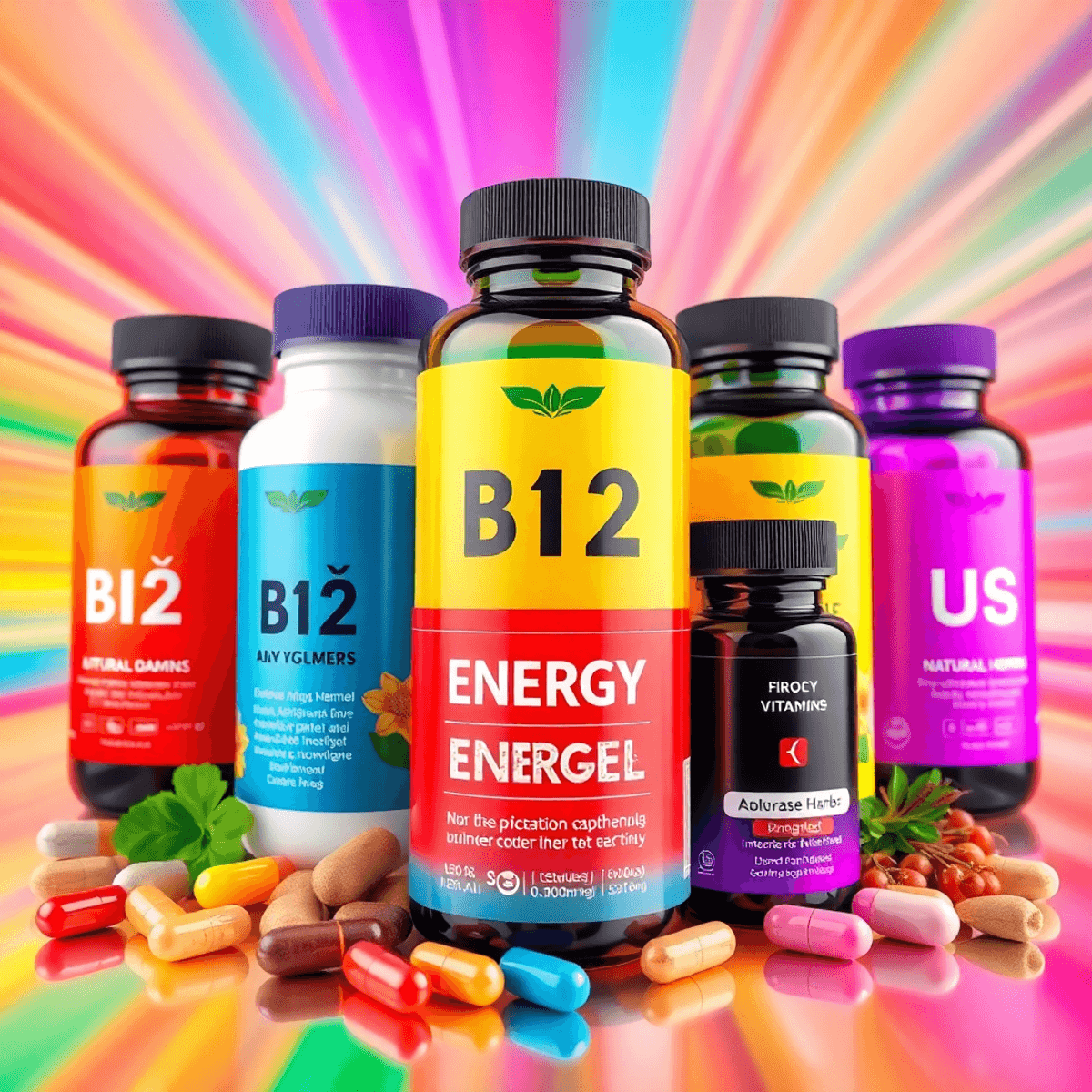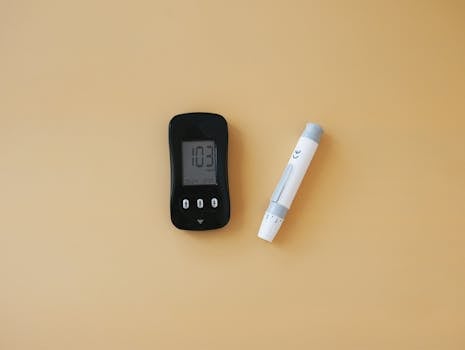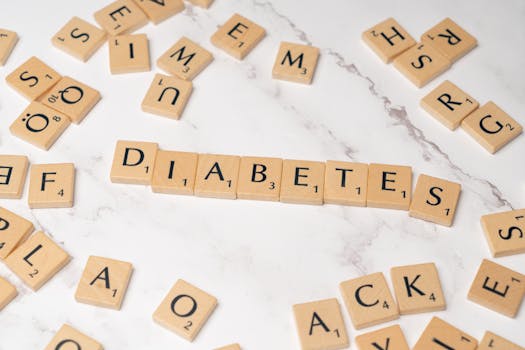Many people look for ways to boost their energy levels, and one popular option is through supplements. The market for energy supplements has grown significantly, with billions of dollars spent each year. These supplements can include vitamins, minerals, and herbal ingredients that claim to fight fatigue and increase energy.
Choosing the right energy supplements can be challenging. It’s important to consider your body’s specific needs, any existing health issues you may have, and any medications you are currently taking. For example, if you’re thinking about switching from Jardiance to Ozempic, there are important factors you should know about regarding how effective they are and what benefits they offer.
In this guide, we will explore:
- Vitamins and minerals supported by science that help produce energy
- Natural herbal alternatives for maintaining steady energy levels
- Safety considerations and possible interactions
- Recommended dosages and the best times to take them
By understanding these key aspects, you’ll be able to make better choices when it comes to energy supplements. We’ll look at both well-known nutrients like B12 and iron as well as newer options such as Ashwagandha and CoQ10. You’ll find out which supplements show promise in boosting energy and which ones may not live up to their claims.
However, it’s essential to remember that certain medications can affect health conditions. For instance, if you’re pregnant, it’s vital to understand the potential risks of taking Ozempic during this time.
Additionally, staying healthy not only benefits you personally but also has positive effects on your family’s well-being. Recent research suggests that having positive experiences during childhood can greatly impact heart health, helping children build resilience against difficult situations.
Finally, when looking into dietary supplements for an energy boost, it’s crucial not to overlook gut health. Studies show that certain gut bacteria may be hidden causes of constipation, which could indirectly influence overall energy levels.
Key Supplements for Energy
Vitamin B12 is a powerful nutrient that helps keep your energy levels up. It plays a crucial role in how your body produces energy by assisting in the creation of red blood cells and supporting DNA synthesis. Your cells require B12 to transform the food you consume into energy that your body can use, making it essential for everyday functioning.
Natural Sources of Vitamin B12
You can find natural sources of B12 in:
- Lean meats and poultry
- Fish and shellfish
- Eggs
- Dairy products
- Fortified cereals
- Nutritional yeast
Signs of Vitamin B12 Deficiency
A lack of B12 can greatly affect your energy levels, resulting in:
- Ongoing fatigue
- Shortness of breath
- Dizziness
- Pale or yellowish skin
- Muscle weakness
- Mood changes
Who is at Risk for Vitamin B12 Deficiency?
Your chances of having a B12 deficiency increase if you:
- Follow a vegetarian or vegan diet
- Are over 50 years old
- Take certain medications like metformin or proton pump inhibitors
Regular blood tests can help identify potential deficiencies, allowing for timely intervention through supplementation.
Recommended Daily Intake of Vitamin B12
The recommended daily intake of B12 varies by age and condition, but most adults need 2.4 micrograms daily.
Forms of Vitamin B12 Supplements
Supplements come in various forms, including:
- Oral tablets
- Sublingual drops
- Injectable forms (prescribed for severe deficiency)
- B-complex combinations
Additional Considerations for Women’s Health
For those experiencing symptoms related to menopause, exploring menopause-friendly nutrition could be beneficial.
Additional Considerations for Gut Health
If you’re dealing with ongoing fatigue or other symptoms that may indicate an underlying issue such as intestinal methanogen overgrowth, it might be worth investigating further.
Additional Considerations for Men’s Health
For men facing energy problems potentially linked to hormonal imbalances, understanding the impact of testosterone replacement therapy on health could provide valuable insights.
Iron
Iron is an essential mineral that helps keep your energy levels steady throughout the day. Your body needs iron to produce hemoglobin, which is the protein that carries oxygen to every cell in your body.
Key Functions of Iron:
- Supports oxygen transport through blood vessels
- Enables energy production in cells
- Maintains proper brain function
- Strengthens immune system response
When your iron levels drop too low, you might experience:
- Persistent fatigue
- Shortness of breath
- Difficulty concentrating
- Pale skin
- Frequent headaches
Iron deficiency anemia affects millions worldwide, especially women of childbearing age and athletes. Your body loses iron through sweat, menstruation, and intense physical activity.
Food Sources Rich in Iron:
- Red meat
- Spinach
- Lentils
- Oysters
- Fortified cereals
Iron supplements can help restore depleted levels, but require careful dosing. Taking iron with vitamin C enhances absorption, while calcium and caffeine can interfere with uptake. A blood test from your healthcare provider can determine if you need supplementation.
Caution: Excess iron supplementation carries risks, including stomach upset and constipation. Some individuals store too much iron naturally, making supplementation potentially dangerous.
Vitamin D
Vitamin D is essential for maintaining energy levels and physical performance. Research indicates a direct link between low vitamin D levels and ongoing fatigue, with many individuals experiencing unexplained tiredness as the first sign of deficiency.
How Vitamin D Affects Your Body
The amount of vitamin D in your body influences:
- Muscle fiber size and strength
- Physical endurance
- Recovery after exercise
- Mental alertness
- Bone density
Signs You Might Have a Vitamin D Deficiency
Look out for these signs that may indicate a deficiency:
- Constant fatigue
- Muscle weakness
- Bone and joint pain
- Slow wound healing
- Mood changes
The Risks of Taking Too Much Vitamin D
While vitamin D supplements can help boost energy levels, it’s important to be cautious. Taking too much can lead to vitamin D toxicity, which can cause:
- Nausea
- Kidney problems
- Excessive calcium buildup
- Severe dehydration
How Much Vitamin D Do You Need?
The recommended daily intake of vitamin D varies based on age, location, and skin tone. Most adults require between 600-800 IU daily, but some may need higher doses under medical supervision.
Factors That Affect Vitamin D Production
Your body produces vitamin D naturally when exposed to sunlight. However, certain factors can impact this production:
- Indoor lifestyle: Spending most of your time indoors can limit sun exposure.
- Geographical location: Living in areas with less sunlight or long winters can affect vitamin D synthesis.
- Skin pigmentation: Darker skin tones may require more sun exposure to produce adequate vitamin D.
Checking Your Vitamin D Levels
Regular blood tests can help determine your vitamin D status and whether you need supplementation.
Magnesium
Magnesium is a vital mineral that plays a key role in more than 300 biochemical processes in your body. It directly affects your energy levels by participating in:
- ATP production (the main form of energy used by your body)
- Glucose metabolism
- Muscle contraction and relaxation
- Nerve signal transmission
Effects of Low Magnesium Levels
When your magnesium levels drop below normal, you may experience:
- Persistent fatigue
- Muscle weakness
- Irregular heartbeat
- Sleep disturbances
- Decreased exercise performance
Recommended Daily Intake
The recommended daily intake of magnesium varies based on age and gender:
- Adult men: 400-420mg
- Adult women: 310-320mg
- Pregnant women: 350-360mg
Natural Sources of Magnesium
You can find magnesium in various foods, including:
- Dark leafy greens
- Nuts and seeds
- Whole grains
- Dark chocolate
- Avocados
Risks of Magnesium Supplementation
While magnesium supplements can be beneficial, it’s important to be cautious about their usage. High doses of magnesium supplements may lead to adverse effects such as:
- Digestive issues
- Muscle weakness
- Low blood pressure
- Irregular heartbeat
- Interactions with certain medications
Your body has a mechanism to regulate magnesium levels, usually eliminating excess amounts through urine. However, individuals with kidney problems are at a higher risk when taking magnesium supplements. To avoid potential complications, the upper limit for supplemental magnesium is set at 350mg per day.
Medications and Their Impact on Magnesium Levels
If you’re working on managing your weight or have specific health conditions like diabetes, certain medications such as Ozempic or Jardiance may come into play. These medications not only aid in weight management but also influence factors like appetite and fullness.
For instance, users often report experiencing prolonged fullness on Ozempic, which can significantly impact dietary habits. However, it’s crucial to be aware of the potential side effects associated with these medications.
There have been reported cases of gastrointestinal issues such as bowel injuries linked to Ozempic use, which could disrupt the delicate balance of magnesium and other nutrients in your body. Always consult with a healthcare professional before starting any new medication or supplement regimen.
Zinc
Zinc is an important mineral that helps your body produce energy and create DNA. It activates over 300 enzymes in your body, which directly affects your metabolism and energy levels.
Why You Need More Zinc During Intense Activity or Illness
When you engage in intense physical activity or are unwell, your body’s need for zinc goes up significantly. Research indicates that taking zinc supplements can:
- Increase the production of immune cells
- Speed up recovery from workouts
- Decrease fatigue caused by exercise
- Support proper hormone function
The Role of Hydration in Maximizing Zinc Benefits
To get the most out of zinc supplementation, it’s crucial to stay properly hydrated, especially during intense physical activity. Hydration is essential for overall health and affects various aspects such as cognitive performance and weight management.
Recommended Daily Zinc Intake
The amount of zinc you need each day depends on your age and gender:
- Adult men: 11mg
- Adult women: 8mg
- Pregnant women: 11mg
- Breastfeeding women: 12mg
Foods Rich in Zinc
You can meet these requirements by including zinc-rich foods in your diet:
- Oysters (74mg per serving)
- Beef (7mg per serving)
- Pumpkin seeds (2.2mg per serving)
- Chickpeas (1.3mg per serving)
Potential Risks of Excessive Zinc Intake
Note: Consuming more than 40mg of zinc daily can interfere with copper absorption and may weaken your immune system. If you decide to take zinc supplements, stick to the recommended dosage and consider taking them separately from other minerals.
Supporting Your Well-being During Increased Zinc Demand
In addition to zinc supplementation, effectively managing stress through holistic practices can further enhance your overall well-being during times when your body requires more zinc, such as during illness or intense physical activity.
Creatine & Coenzyme Q10 (CoQ10)
What is Creatine?
Creatine stands out as a powerhouse supplement for athletic performance. Your body naturally produces this compound, storing it in muscle tissue to fuel short bursts of intense activity.
Benefits of Creatine
Research shows creatine supplementation can:
- Increase muscle strength by up to 15%
- Enhance power output during high-intensity exercise
- Support muscle recovery between workouts
- Improve brain function under stress
What is Coenzyme Q10 (CoQ10)?
CoQ10 works differently – it’s an antioxidant your cells use to generate energy. While your body produces CoQ10 naturally, levels decline with age.
Benefits of CoQ10
Studies indicate CoQ10 supplementation might:
- Support heart health
- Reduce exercise-induced fatigue
- Help maintain energy levels in older adults
Who Can Benefit from These Supplements?
The evidence for creatine’s benefits centers primarily on athletic performance and muscle function. You’ll find less scientific support for its use in combating general daily fatigue.
Similarly, CoQ10’s energy-boosting effects appear most beneficial for specific populations, particularly older adults or those with certain health conditions.
Dosage Recommendations
Typical creatine dosing ranges from 3-5g daily, while CoQ10 supplementation varies between 100-200mg per day. Both supplements show strong safety profiles when used as directed.
How These Supplements Work Together with Dietary Strategies
Interestingly, the benefits of these supplements can be further enhanced when combined with specific dietary strategies such as a 96-hour fast, which can help improve gut health and boost weight loss effectively.
Additionally, for individuals dealing with anxiety, exploring alternative treatments like ketamine therapy could provide rapid relief while they continue their supplement regimen.
Importance of Monitoring Injection Dosages
Moreover, it’s worth noting that the ideal dosage for certain injections such as NAD+ which is known for its anti-aging and cognitive enhancement properties, should be carefully monitored. A detailed understanding of the ideal NAD injection dosage can ensure maximized benefits and minimized risks.
Complementing Supplement Effects with Unique Health Drinks
Lastly, incorporating unique health drinks like butterfly milk into your diet can provide additional antioxidants and health benefits which may complement the effects of these supplements.
Herbal Supplements for Energy: Ashwagandha & Ginkgo Biloba
Ashwagandha (Cortisol Regulation)
Ashwagandha, a traditional herb in Ayurvedic medicine, is renowned for its potential to regulate cortisol levels. Cortisol, often referred to as the stress hormone, plays a significant role in energy metabolism and overall well-being.
- Stress Reduction: By modulating cortisol production, Ashwagandha can help reduce stress and anxiety, which indirectly supports energy balance throughout the day.
- Improved Sleep: Lower cortisol levels can contribute to better sleep quality, crucial for maintaining high energy levels.
Ginkgo Biloba (Mood Enhancement)
Ginkgo Biloba is another herbal supplement that has gained attention for its cognitive and mood-enhancing properties.
- Enhanced Alertness: Studies suggest that Ginkgo Biloba extract can boost mental alertness and concentration, making it easier to stay energized and focused.
- Mood Boosting: The herb is known for its potential in improving mood and reducing symptoms of anxiety and depression, which can significantly impact overall energy levels.
Incorporating these herbal supplements into your routine could offer potential benefits for managing stress and enhancing mental clarity. However, it’s essential to consult with healthcare professionals before starting any new supplement regimen.
Additionally, exploring dietary approaches such as intermittent fasting could further support your energy management and overall metabolic health.
Considerations and Precautions When Using Energy Supplements
While a balanced diet remains your primary source of essential nutrients, supplements work best when they complement – not replace – proper nutrition. Your daily meals should include:
- Lean proteins
- Complex carbohydrates
- Healthy fats
- Fresh fruits and vegetables
- Whole grains
Common Side Effects of Supplement Overuse:
- Digestive issues (nausea, diarrhea)
- Sleep disruptions (which you can read more about here)
- Headaches
- Anxiety or jitters
- Increased heart rate
- Liver strain
The timing of supplement intake can impact their effectiveness and potential side effects. Taking certain supplements late in the day might disrupt your sleep patterns. Iron supplements, for example, are best absorbed on an empty stomach but can cause stomach upset.
Safety Guidelines:
- Start with lower doses to assess tolerance
- Take supplements as directed on the label
- Store supplements properly in cool, dry places
- Check expiration dates regularly
- Document any adverse reactions
- Maintain detailed records of your supplement routine
Drug interactions pose serious risks. Many supplements can interact with prescription medications, affecting their absorption or potency. Some combinations might lead to dangerous health complications.
For instance, if you’re using Wegovy for weight loss, it’s crucial to understand its interaction with alcohol. Here are some essential tips for safe consumption while using Wegovy.
Conclusion
Energy supplements can provide targeted support when you’re feeling physically or mentally drained. The key is understanding which supplements work for your specific needs.
Your healthcare provider plays a vital role in:
- Identifying nutrient deficiencies through proper testing
- Recommending appropriate supplement dosages
- Evaluating potential interactions with medications
- Creating a personalized supplementation plan
For instance, if you’re dealing with chronic conditions like diabetes, they can guide you towards suitable dietary adjustments and supplementation. In some cases, they may suggest innovative treatment options such as sublingual Semaglutide, which has shown promise in enhancing patient compliance and promoting weight loss effectively.
Remember: supplements work best as part of a comprehensive approach to energy management. A balanced diet, regular exercise (which also has top benefits for mental health), quality sleep, and stress management create the foundation for sustained vitality. Supplements can enhance—but not replace—these fundamental lifestyle practices.
Always consult with healthcare professionals before starting any supplement regimen to ensure both safety and effectiveness in your energy optimization journey.
FAQs (Frequently Asked Questions)
What are the key supplements that help boost energy levels?
Key supplements for boosting energy include Vitamin B12, Iron, Vitamin D, Magnesium, Zinc, Creatine, and Coenzyme Q10 (CoQ10). These nutrients play vital roles in energy production, muscle function, oxygen transport, and immune support.
How does Vitamin B12 affect energy production and fatigue?
Vitamin B12 is essential for energy production and red blood cell formation. A deficiency can lead to fatigue and decreased energy levels. Sources include meat, fish, dairy products, and fortified foods.
Why is iron important for preventing fatigue and how does it work?
Iron supports oxygen transport in the body by being a key component of hemoglobin. Iron deficiency can cause anemia-related fatigue and impaired cognitive function. Iron supplements may be used to treat such deficiencies.
What precautions should I take when using Vitamin D supplements for energy?
While adequate Vitamin D levels support muscle strength and reduce fatigue, excessive supplementation can lead to toxicity. It’s important to monitor dosage and consult a healthcare professional before starting Vitamin D supplements.
Can herbal supplements like Ashwagandha and Ginkgo Biloba improve energy levels?
Ashwagandha may help regulate cortisol levels, indirectly supporting daily energy balance. Ginkgo Biloba is associated with mood enhancement and improved alertness. Both herbs have potential benefits but should be used cautiously under guidance.
Why is consulting a healthcare professional important before starting any energy supplement regimen?
Consulting healthcare professionals ensures safe and effective supplementation by identifying individual nutrient deficiencies and guiding appropriate dosages. This helps prevent adverse effects such as gastrointestinal discomfort or sleep disturbances from improper supplement use.






